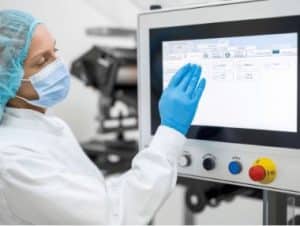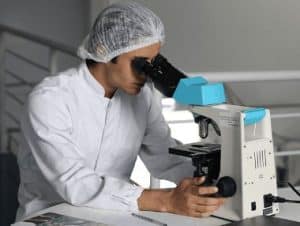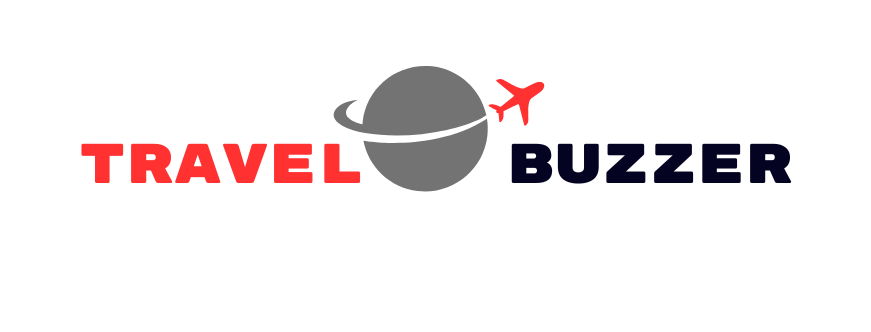The large pharmaceutical sector offers a wide range of medical, manufacturing, and marketing professions along with many fantastic career prospects. Finding the right employment for you might be aided by learning more about the different roles that are available in this area.
This article covers the definition of major pharmaceuticals, the number of jobs that are available in large pharmaceuticals, the employment outlook, the many career kinds, and the qualifications needed to obtain them.
What are the main brands of pharmaceuticals?
To maintain the proper operation of the health care sector, the pharmaceutical business manufactures medical supplies.They produce, advertise, and supply drugs to cure illnesses and infections. In order to enhance patients’ health, they also conduct research and create medical technologies. Pharmacies in this industry are both private and public.
How many positions are open at the big pharmaceutical companies?
According to the US Bureau of Labor Statistics, approximately 323,500 people are employed by large pharmaceutical companies.It says that before the end of the decade, the industry might employ at least 7,700 pharmacists.The BLS estimates that employment will expand by just 2%.It also says that pharmacists who migrate or retire may take on new roles. Additionally, 447,300 pharmacy technicians work for large pharmaceutical companies.These workers dispense or distribute pharmaceuticals to patients for a reduced pay rate.The BLS projects a 5% increase in jobs between 2021 and 2031.There might therefore be roughly 43,000 employment opportunities at this time.
Jobs available in big pharmaceutical companies
The jobs that are currently open in the pharmaceutical industry are listed here, categorized by distribution, sales, and marketing, pharmaceutical production, and research and development. Check out indeed.com/salaries for the latest recent wage data from Indeed.
production of pharmaceuticals
Positions in the pharmaceutical manufacturing industry comprise:
1. A technician for maintenance
Annual wage average for the nation: $49,794
Principal responsibilities: All of the facility’s equipment is inspected, maintained, serviced, repaired, and troubleshooted by maintenance experts. They are in charge of regularly checking on alarms in the warehouse and plant facilities. Pumps, incubators, centrifuges, plumbing systems, and security systems are a few of the equipment they look after. In addition, they supply and maintain emergency tools and spare components.
2. Operator for packaging

$41,807 annually is the average pay nationwide.
packing operators’ major responsibilities are to handle and maintain the packing machinery. Their deep knowledge of packing machinery is put to use when they label, pelletize, cover, and seal manufactured medications and medical supplies. They routinely take inventory and fill canned and bottled goods by hand or automatically.
3. The national average income for a quality control analyst is $65,432 annually.
Principal responsibilities: Analysts in quality control keep an eye on every stage of production. They guarantee the standard quality of both the finished goods and the raw materials used in their manufacture. They oversee testing processes in order to spot possible issues with quality and take prompt action to fix them. Training new QC analysts to conduct laboratory assays and handle equipment problems is one of their other responsibilities.
4. Supervisor of production
$65,861 annually is the average pay nationwide.
Principal responsibilities: Production managers create resource plans to guarantee safety and operational compliance. Setting weekly, monthly, and yearly goals for pharmaceutical productions, liaising with other staff members, delegating tasks, and creating broad calendars are a few of their roles. They also keep an eye on the output of production and send in data on performance and project developments on a regular basis.
5. Engineer in manufacturing
$84,454 annually is the average pay nationwide.
Principal responsibilities: Manufacturing engineers create, construct, run, enhance, and maintain machinery and facilities used to manufacture pharmaceuticals. When demand is high, it is their responsibility to optimize distribution and ramp up production.To make sure that activities adhere to all sterile processing regulations, manufacturing engineers oversee process controls. Taking risks for the safety of patients and staff is their ultimate responsibility.
6. A physician who studies epidemiology

$68,837 annually is the average pay nationwide.
Principal responsibilities: To gather information for creating appropriate drugs, epidemiologists investigate the origins, consequences, and dissemination of diseases within populations. They do effective study on how patients are affected by specialty medications. To learn more about the effects or spread of a disease or treatment, they might also monitor patterns and behaviors.
7. A microbiologist
The average annual pay nationwide is $63,211.
Principal responsibilities: In the pharmaceutical plant, quality assurance procedures are carried out by microbiologists. They use raw materials to make novel medications, and they monitor microbial populations and do laboratory analyses. During clinical trials, they might help with sample and new medication analysis utilizing computer tools and standardized procedures.
8. Engineer in biomedicine
$86,755 annually is the average pay nationwide.
Principal responsibilities: When developing new drugs or refining old ones, biomedical engineers experiment with different combinations of drugs. They create artificial internal organs, replacement body parts, and improved methods for medical diagnosis through the use of genetic, tissue, and fluid engineering. To guarantee safety compliance, biomedical engineers collaborate with the pharmaceutical manufacturing team. They offer technical assistance both within the building and the warehouse.
9. A scientist in clinical research
$137,719 annually is the average pay nationwide.
Principal responsibilities: During clinical trials to evaluate the effects of new or improved medications, clinical research scientists support the process. They devise, plan, and carry out clinical study protocols. Their technical responsibilities include analyzing scientific data to gain new insights and enhance goods.
Additionally, they communicate with researchers and senior personnel to report and present all findings and to verify the quality of lab data.
Pharmaceutical sales, marketing, and distribution
Positions in sales, marketing, and distribution include:
10. The national average compensation for a marketing professional is $50,777 annually.
Principal responsibilities: The pharmacy’s entire marketing strategy is managed by marketing experts. They support the distribution team in creating and executing a range of marketing initiatives aimed at reaching target audiences and boosting customer loyalty. To promote new items, marketers use both traditional and digital marketing strategies.
11. Manager of sales

The national average wage is $81,041 annually.
Principal responsibilities: Sales managers research rival pharmaceutical businesses in order to create more effective marketing plans and advertising campaigns.They learn about important pharmaceutical trends by attending business and educational events. They work in tandem with the company’s marketing team to raise awareness of the product and foster brand loyalty. Above all, they examine sales data in order to find and seize chances that could improve the performance of the sales team.
12. Liaison for medical science
$67,822 annually is the average pay nationwide.
Principal responsibilities: Identification of key opinion leaders (KOLs) pertinent to the company’s product is done by medical scientific liaison. They facilitate discussions with these specialists to answer any questions typical consumers could have regarding the goods. They operate as a conduit for useful information to be shared between the development and marketing teams, potentially enhancing marketing collateral or business strategy.
Qualifications for employment in pharmaceuticals
Recruiters from pharmaceutical businesses like to hire people with backgrounds in science. This means that having a degree in pharmacy, pharmacology, medical sciences, biology, chemistry, biochemistry, or microbiology is essential for career seekers in this field. To work in the pharmaceutical industry’s manufacturing and research niches, it would be ideal if you had a thorough understanding of these subjects. Among the prerequisites to collaborate with large pharmaceutical companies are the following:
Education
If you’re interested in working in the large pharmaceutical sector, some relevant degrees to have are:
- Pharmacology: This degree program exposes you to a variety of courses on how drugs affect the body. It provides you with important knowledge for creating and testing medications.
- Pharmacy: This degree program covers pharmacology, pharmaceutical laws, and medication development. It assists in becoming ready for a profession in medication development and research.
- Biochemistry: The degree facilitates the easier manufacture of drugs by providing an in-depth understanding of pertinent chemical processes. It aids in your comprehension of how medications affect the body.
- Medical sciences: Having a degree in the medical sciences gives you the skills necessary to plan and carry out clinical research in the pharmaceutical sector.
- Engineering: This degree provides information on the design, troubleshooting, repairs, and maintenance of pharmaceutical equipment. Major medications depend heavily on biological and computer engineering.
Education and accreditation
Some certifications to have in order to be more competitive in the employment market are as follows:
- Professional in the Industry Certified (CPIP): This certification can be obtained through training for those who are interested in the pharmaceutical industry’s research and development side.
- Professional in Certified Sales (CSP): Sales expertise is needed for the distribution and marketing division of major medications. To those who meet the requirements, the Manufacturers’ Representative Education Research Foundation awards this certificate.
- Certification of Pharmacy Technicians: Training is offered by this certification program for people who are interested in administrative and technical work.
- Training in Good Manufacturing Practices (GMP): Understanding the legal requirements for pharmaceutical manufacture is provided by this training program. It benefits roles related to control and quality assurance in the sector.
- Clinical Research Coordinator Training: This program provides the information and abilities needed to organize clinical research projects in accordance with legal specifications. For those looking for jobs in clinical research in the pharmaceutical sector, this training is beneficial.
- Certification in Medication Therapy Management: This program offers instruction in patient-centered care and medication management. Those that work directly with patients, such as pharmacists and pharmacy technicians, will find it valuable.
- Certification in Sterile Compounding: This program teaches staff members how to prepare pure compounds in medical environments. In compounding and sterile preparation, pharmacy technicians and pharmacists can benefit from having this certification.
Ability
Consider developing the following abilities if you want to excel in the pharmaceutical industry:
- Outstanding ability to communicate: It is essential to have the capacity for clear and focused communication with clients, customers, and coworkers.
- Strong interpersonal abilities It takes exceptional people skills to work with a variety of healthcare experts, sales, manufacturing, development, and regulatory authorities. Develop your ability to build relationships, work well in teams, and have pleasant interactions with people.
- Adaptability: Since the pharmaceutical industry is always changing, this entails picking up new skills fast and adjusting to new circumstances. Adjustments could involve learning to use newer, more advanced pharmaceutical equipment or changing drug production standards to conform to new laws.
- Problem-solving: This is taking the initiative to solve difficult issues like as defective products, equipment breakdowns, and difficulties with regulatory compliance.
- Sharp attention to detail: Considering the stringent rules in the field, this quality is essential. It entails identifying mistakes and discrepancies to guarantee that all medications and medical supplies are of the best caliber possible to protect patient safety.
Advice on how to get a job with a large pharmaceutical company
Here are some pointers to help you land a job with a large pharmaceutical company:
- Connect. Developing a strong network of relationships with influential figures and stakeholders within the pharmaceutical sector can help you connect with employers and candidates for available positions.
- Stay informed about industry developments. To keep yourself informed about current events and the pharma industry’s latest developments, read publications and social media posts from the pharmaceutical business.
- Make your CV unique to the particular pharmaceutical position. For maximum impact, tailor your cover letter and resume to the position you’re looking for by using pertinent keywords. For research and development roles, for example, you can include keywords like clinical trials, regulatory compliance, analytical chemistry, and pharmacovigilance.





